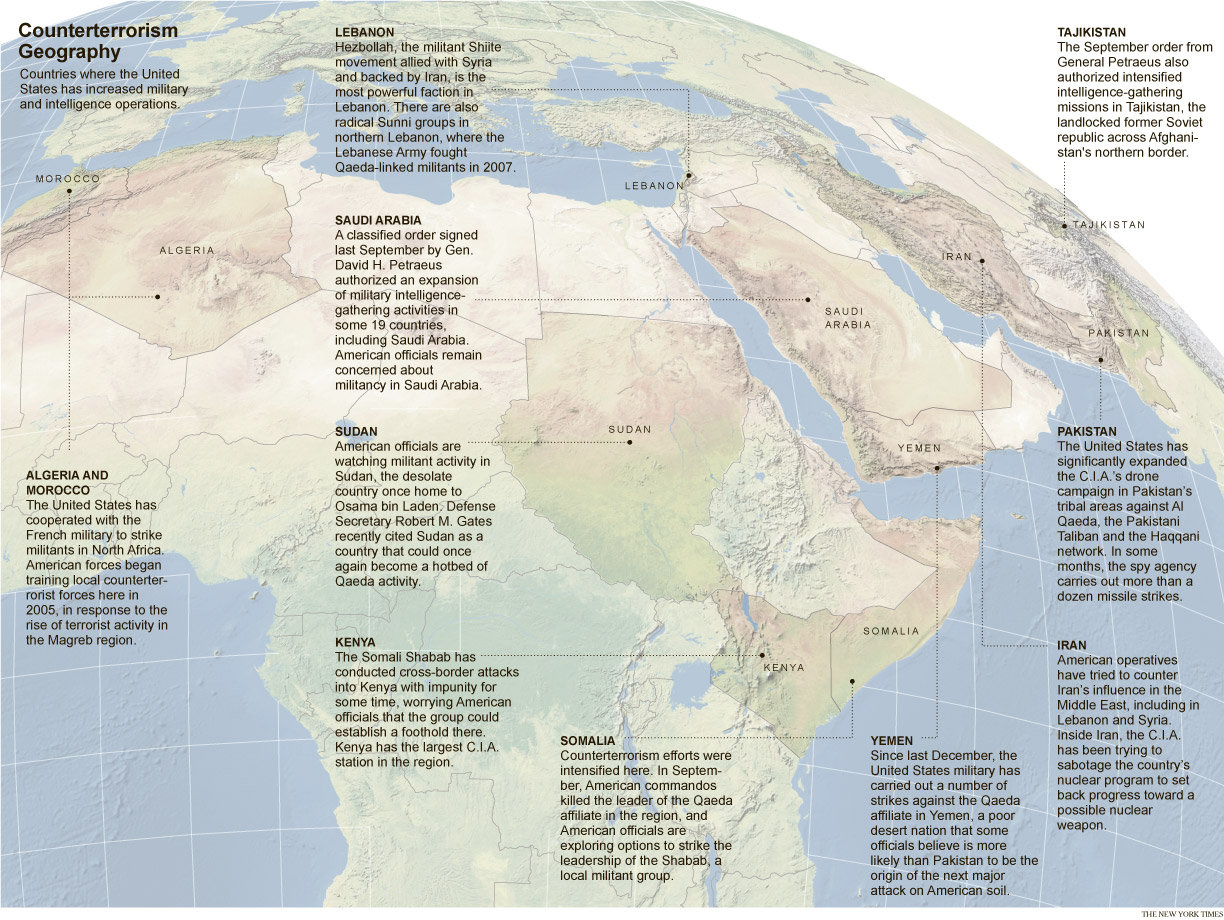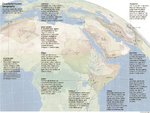
Great NYT piece on "shadow war" (the usual term of art when your Leviathan ops--meaning kinetic--are conducted by your special ops guys here and there). The gist:
At first, the news from Yemen on May 25 sounded like a modest victory in the campaign against terrorists: an airstrike had hit a group suspected of being operatives for Al Qaedain the remote desert of Marib Province, birthplace of the legendary queen of Sheba.
But the strike, it turned out, had also killed the province’s deputy governor, a respected local leader who Yemeni officials said had been trying to talk Qaeda members into giving up their fight. Yemen’s president, Ali Abdullah Saleh, accepted responsibility for the death and paid blood money to the offended tribes.
The strike, though, was not the work of Mr. Saleh’s decrepit Soviet-era air force. It was a secret mission by the United States military, according to American officials, at least the fourth such assault on Al Qaeda in the arid mountains and deserts of Yemen since December.
The attack offered a glimpse of the Obama administration’s shadow war against Al Qaeda and its allies. In roughly a dozen countries — from the deserts of North Africa, to the mountains of Pakistan, to former Soviet republics crippled by ethnic and religious strife — the United States has significantly increased military and intelligence operations, pursuing the enemy using robotic drones and commando teams, paying contractors to spy and training local operatives to chase terrorists.
The White House has intensified the Central Intelligence Agency’s drone missile campaign in Pakistan, approved raids against Qaeda operatives in Somalia and launched clandestine operations from Kenya. The administration has worked with European allies to dismantle terrorist groups in North Africa, efforts that include a recent French and Mauritanian strike near the border between Mauritania and Mali. And the Pentagon tapped a network of private contractors to gather intelligence about things like militant hide-outs in Pakistan and the location of an American soldier currently in Taliban hands.
While the stealth war began in the Bush administration, it has expanded under President Obama, who rose to prominence in part for his early opposition to the invasion of Iraq. Virtually none of the newly aggressive steps undertaken by the United States government have been publicly acknowledged.
This is why, when I divide up the "kids" between Leviathan and SysAdmin in the brief, I put the SOF triggers pullers with the Leviathan but shove the Unconventional Warfare guys (a misleading label because they're really the hearts-and-minds/milk-mil training crowd) into the SysAdmin pile. My excuse: I don't care to explain publicly what the trigger-pullers do--and neither does the USG.
But the larger point: fine to do the nasty work on the nasty types, but that needs to be publicly balanced with highly transparent SysAdmin efforts, otherwise the shadow war starts to feel like a cynically maintained shadow empire of the "escape-from-New-York" variety--as in, we put a fence around bad countries and enter them at will primarily for the kinetics/killing.
That is a defense but not a solution. It's also morally unsustainable.
Obama has shown an amazing toughness on the kinetic side, acting far beyond his words. But he's also shown a strong desire to "come home" when the SysAdmin stuff--in all its magnificent difficulty and frustrations--drags on to long. That second instinct, when coupled with the USG's continued lack of strategic imagination regarding new allies and serious regionalization strategies (like in Afghanistan) makes us look still too unilateral and too cynical in our approach.
